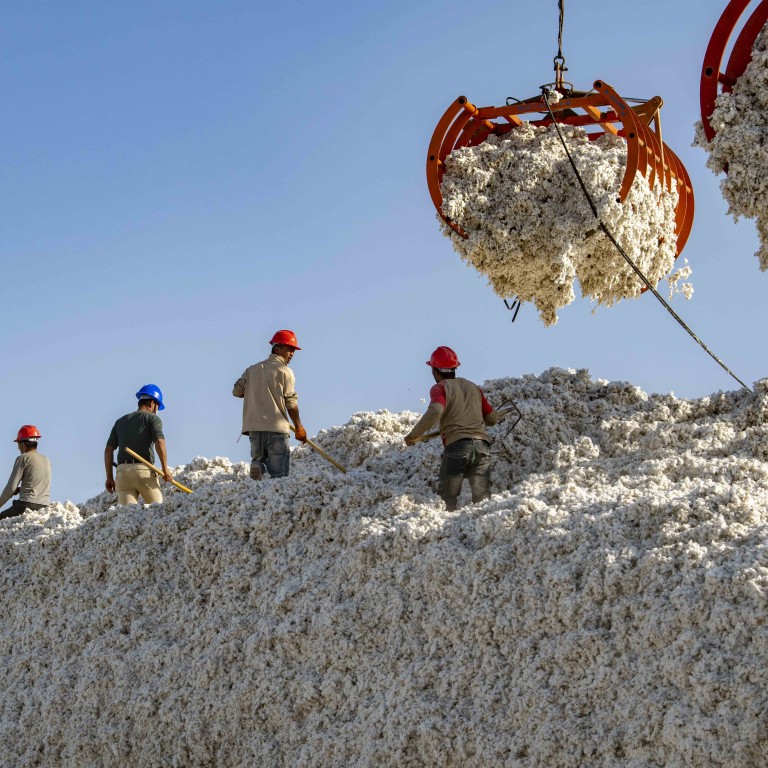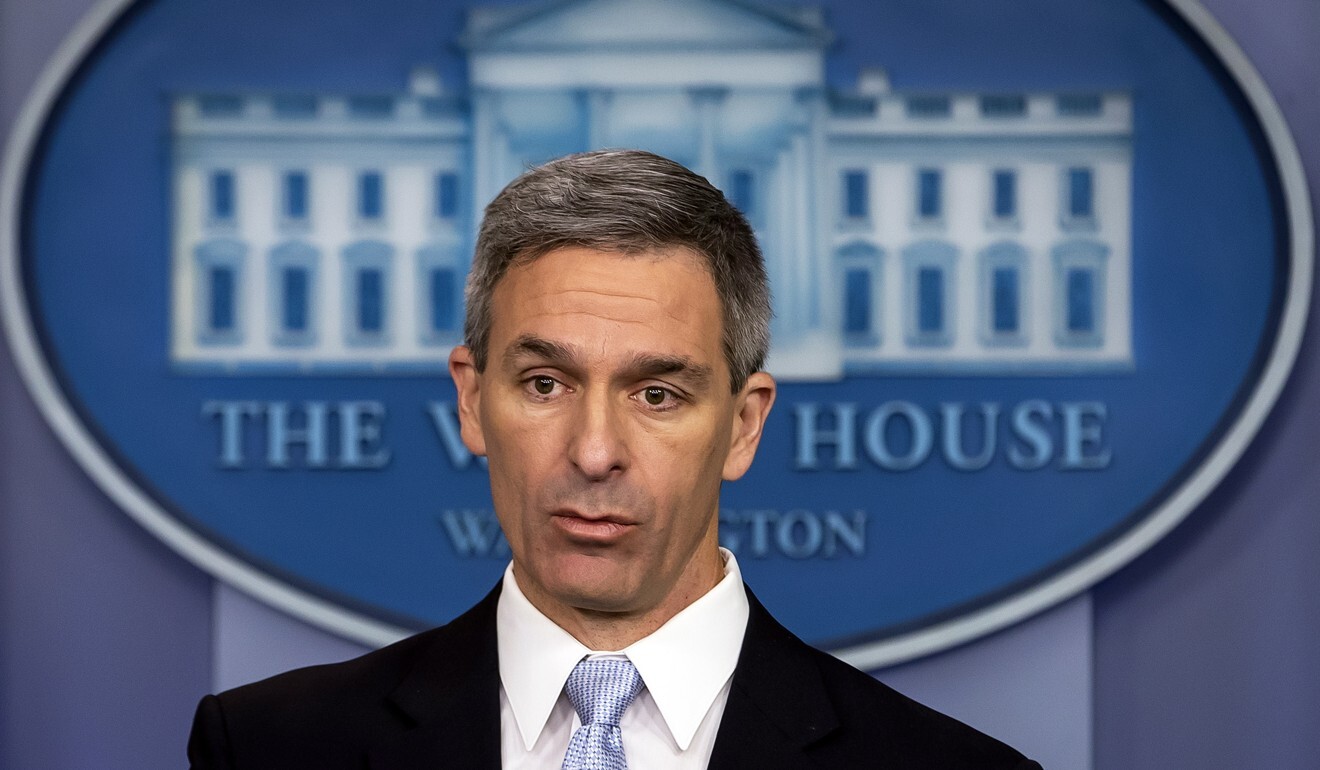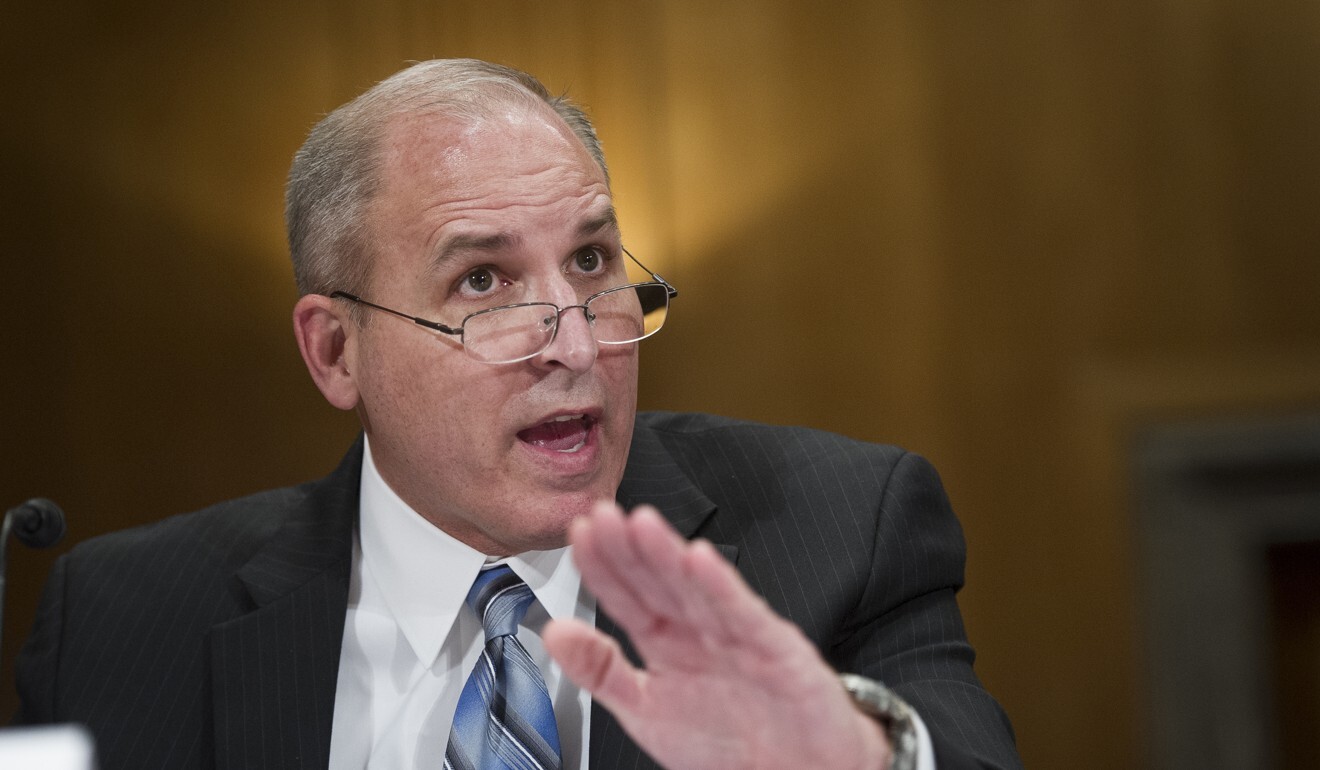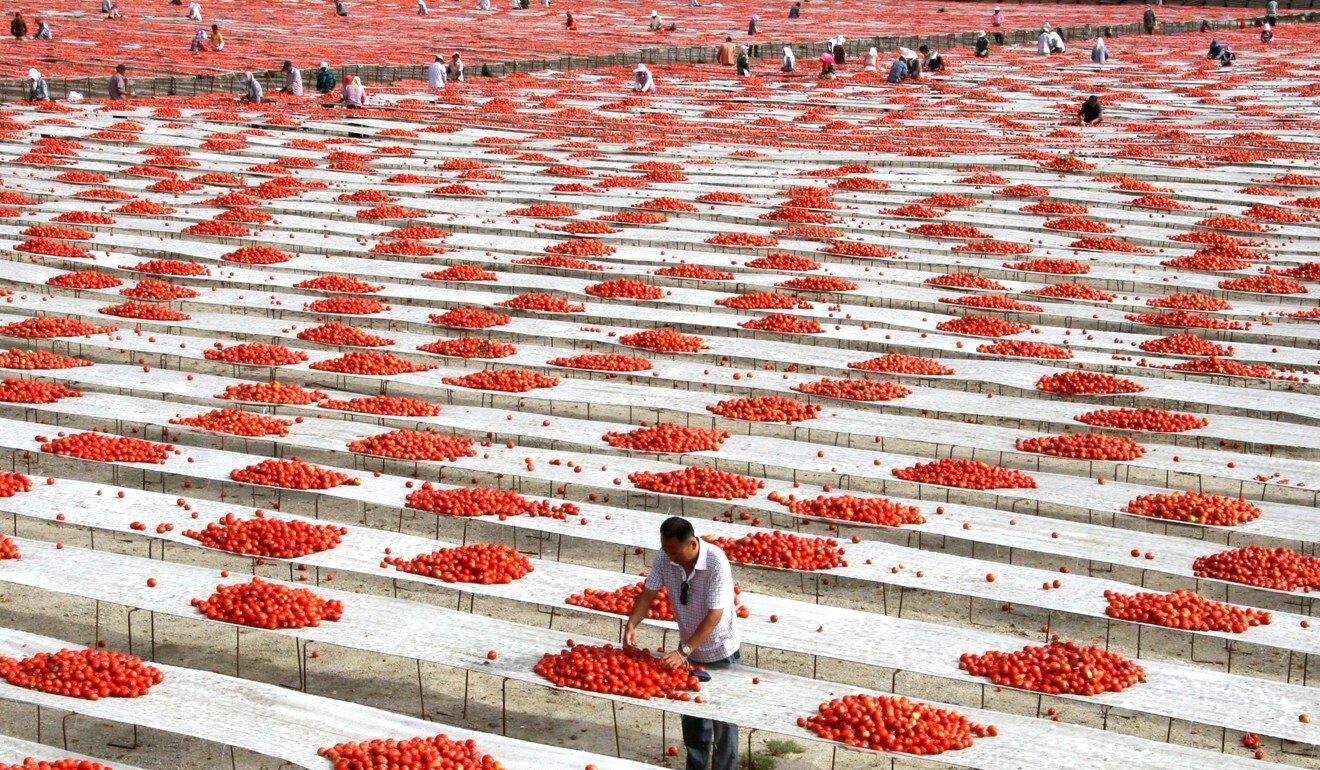
US bans all imports of cotton and tomato products from Xinjiang, citing allegations of forced labour
- Effective immediately, the measure applies to goods shipped from Xinjiang as well as products from outside the region using its resources
- US companies annually import around 1.5 billion garments containing Xinjiang cotton, representing sales of more than US$20 billion, a watchdog group says
The US is banning all imports of cotton and tomato products originating in China’s Xinjiang Uygur autonomous region, government officials said on Wednesday, citing growing concerns over widespread use of forced labour there.
Coming in the final week of the Trump administration, the action, effective immediately, constitutes one of the most sweeping and aggressive policy actions taken by the US to address China’s treatment of ethnic minority groups in the northwestern region.
The measure will also send shock waves through a global garment industry that is deeply enmeshed in Xinjiang, which produces around a fifth of the world’s cotton.
“‘Made in China’ does not just indicate a country of origin – it’s a warning label,” Ken Cuccinelli, the acting deputy secretary of Homeland Security, said at a news briefing.

The ban applies not only to finished goods shipped from Xinjiang, but to items routed through third countries as well. It will also cover goods that are assembled outside Xinjiang but that use raw cotton and tomato from Xinjiang, officials said.
China denies the existence of forced labour in Xinjiang. In a statement, a spokesperson for the Chinese embassy in Washington said that the forced-labour issue was “a political lie concocted by some US politicians and is totally groundless”.
Accusing Washington of seeking to undercut Xinjiang‘s economic development, the spokesperson said the US intended to “deprive Xinjiang people of their right to pursue a better life through work, and cause ‘forced unemployment’ and ‘forced poverty’”.
Chinese state media denies BBC reports of forced labour in Xinjiang cotton fields
The ban follows a roughly two-year investigation by the US Customs and Border Protection (CBP) agency into the presence of forced labour in Xinjiang, a probe that US officials acknowledged was hampered by a lack of access to the region. The agency thus leaned on information gathered by non-governmental watchdog groups and media reports.
CBP officials said they had determined the existence of six indicators of forced labour in Xinjiang, as defined by the United Nations’ International Labour Organization: debt bondage; restriction of movement; isolation; intimidation and threats; the withholding of wages; and abusive working and living conditions.
“It’s crystal clear that the Chinese government is executing a campaign of repression targeting the Uygur people and other ethnic and religious minority groups,” Mark Morgan, the acting CBP commissioner, said.

CBP officials have for months said that a sweeping ban was under consideration, even as they issued stand-alone import bans against targeted entities believed to either be providing or employing forced labour.
In December, the administration issued a ban, known as a withhold release order, on cotton products tied to the Xinjiang Production and Construction Corps (XPCC), a sprawling, state-owned paramilitary organisation whose farmers produce around a third of the region’s cotton.
Since December, CBP has seized 43 shipments of goods connected to the XPCC, totalling more than US$2 million in value, said Brenda Smith, executive assistant commissioner of the CBP’s trade office.
Following Wednesday’s action, the US faces an even greater task of enforcement.
US companies annually import around 1.5 billion garments containing Xinjiang cotton, representing sales of more than US$20 billion, according to the Workers Rights Consortium (WRC), a labour rights watchdog group based in Washington.
Officials on Wednesday were unable to quantify the amount of tomato products imported from Xinjiang specifically, but said that the US buys around US$10 million worth of the commodity from China each year. Around a quarter of the world’s supply of tomato ketchup is sourced from Xinjiang, according to Chinese state media reports.

To identify Xinjiang-sourced material in goods shipped from other countries, DHS is developing forensic technology “to more affirmatively shut down importers who are not policing their own supply chains”, Cuccinelli said.
Any importers who intentionally seek to circumvent the restrictions would be subject to criminal investigation, he added.
The new action was praised by labour rights advocates, who have long contended that a blanket ban, while hard to enforce, is the only way to insulate US supply chains from the risk of forced labour.
The new ban would “redefine how the apparel industry – from Amazon, to Nike, to Zara – sources its materials and labour”, Scott Nova, WRC’s executive director, said in a statement.
Britain introduces new policies to end supply-chain links to Xinjiang
“Any global apparel brand that is not either out of Xinjiang already, or plotting a very swift exit, is courting legal and reputational disaster,” he added. “The days when any major apparel brand can safely profit from Xinjiang cotton are over.”
Wednesday’s move comes as other Western countries enact their own Xinjiang-related import restrictions, including Britain, which announced new polices on Tuesday that will require companies to extract their supply chains from the region.
Those who do not meet the new requirements will be subject to financial penalties, Foreign Secretary Dominic Raab said.

